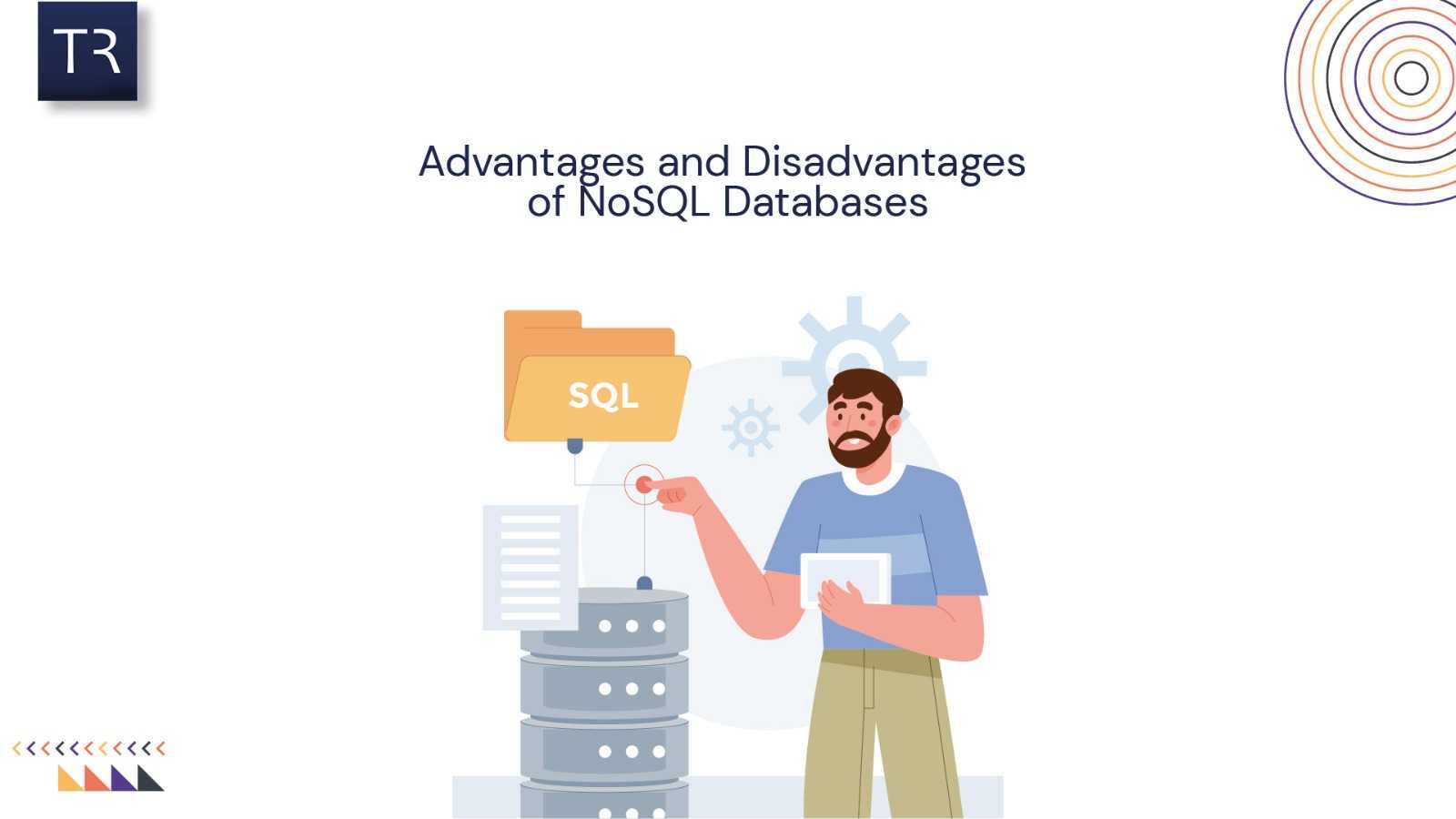Physical address:
573 Hutchinson Ln, Lewisville, TX 75077, USA.
The world of data management is constantly evolving to its full potential. The traditional relational databases have new and more powerful alternative NoSQL databases. Before delving into the advantages and disadvantages of NoSQL databases, we must know how flexible and scalable they are.
Modern businesses increasingly prioritize agility and the ability to handle large unstructured data. The debate around NoSQL databases versus SQL databases has never been more relevant than it is now.
In this blog, we will shed light on the NoSQL databases and their advantages and disadvantages. This will help you understand the needs of your organization and see how this modern approach fits in.
Table of contents
What is a NoSQL database?
Before getting insights into the pros and cons of the NoSQL database, it is important to know what NoSQL databases are.
Unlike relational and traditional SQL (structured query language) NoSQL (not only SQL) is designed to store and retrieve unstructured data.
The NoSQL databases are created to store and retrieve data that doesn’t necessarily fit into a structured table form.
These modern databases offer a variety of models. The models include documents, key values, graphs, and columnar databases. These models make them highly versatile for handling semi-structured or unstructured data.
Advantages and disadvantages of NoSQL databases
Advantages of NoSQL Databases
Flexibility in data models
- Schema-less design
NoSQL databases don’t require a predefined schema. This allows a flexible and dynamic data model. It is particularly important in dealing with unstructured data and data that changes frequently. Developers modify the data instantly without causing downtime or extensive rework.
Scalability
- Horizontal scalability
Their ability to scale horizontally is one of the most significant features of NoSQL databases. It means you can now add more features to your infrastructure to handle increased loads.
The NoSQL databases are ideal for applications with huge data or high traffic. Platforms like social media and e-commerce websites with data are suitable for these databases.
High performance specific workload
- Optimized for read/write operations
NoSQL databases have been meticulously designed and optimized for high-performance read and write operations.
Cost-effectiveness of NoSQL databases
- Open source option
These databases like MongoDB, Cassandra, and Redis are open source, reducing ownership. NoSQL databases run on commodity hardware, which further lowers expenses.
Related links you may fin interesting
Disadvantages of NoSQL databases
Lack of ACID Compliance
- Unlike traditional SQL databases, which are ACID (atomicity, consistency, isolation, durability) compliant.
- Most NoSQL databases follow the BASE (basically available, soft state, eventually consistency) model. This means that they may not always guarantee immediate consistency across all nodes.
- Which can be a drawback for applications requiring strict transactional integrity.
Limited query capabilities
- Complex queries
NoSQL databases often lack the advanced querying capabilities of SQL databases. This can make it challenging to perform intricate data analysis. It requires additional workarounds and the usage of external tools.
Learning curve
- New Paradigm
NoSQL requires a complete shift of mindset for developers. Developers who are accustomed to SQL databases find it hard to adjust to modern databases. It may lead to fewer community resources, less vendor support, and limited documentation for lesser-known NoSQL solutions.
Some popular types of NoSQL databases:
- Document store: MongoDB, Couchbase, and Apache CouchDB.
- Graph Stores: Neo4j, JanusGraph, and Amazon Neptune
- Key value stores: Redis, Amazon DynamoDB, and Riak
Conclusion
NoSQL databases offer a compelling alternative to traditional SQL databases. particularly for applications that require flexibility, scalability, and high performance.
However, they are not a one-size-fits-all solution and come with trade-offs that need careful consideration.
By weighing the advantages and disadvantages of NoSQL databases outlined in this blog. You can determine whether a NoSQL database is the right fit for your organization’s data management strategy.


